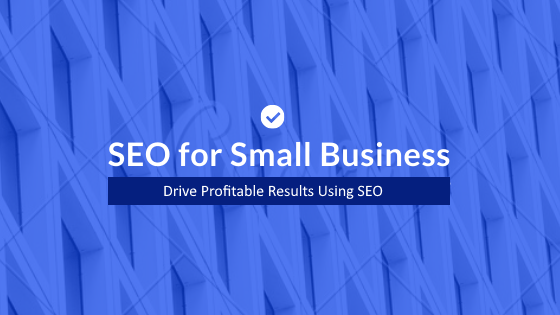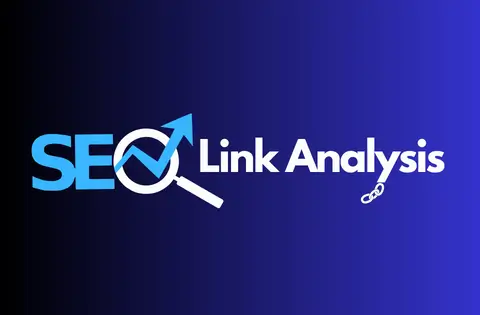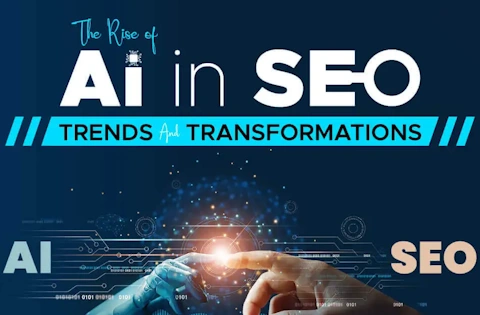What is in the SEO? How Small Business Drives Profitable Results Using SEO?

What is SEO for Small Businesses?
We often talk about SEO to particularly denote search engine optimization strategies for small businesses.
But SEO for small businesses is a game of patience and the right SEO Campaign is a part of the game.
I often come across small business owners and entrepreneurs who need SEO services for their businesses.
But they don’t like to talk about it as if it’s a waste of time.
And if someone does talk about it.
They want results from the very first month as if they would rank for all of the competitive keywords in their industry.
This is because they are afraid of seeing no results in 6 months and SEO consultants start charging thousands of dollars.
So this is quite difficult for industries small businesses and enterprises to digest SEO conversions in real life.
Small businesses need to understand that there are many alternatives to SEO.
But to get to the competitive SEO stage from where you can actually start to see results is a long-term plan.
And it can only be achieved through a step-by-step process.
Most business owners often forget about the process and the work that is involved in SEO and seem more interested in the results.
This is one of the reasons we could find plenty of small businesses and industries that have never experienced the real power of SEO.
What is SEO for Small Businesses?
Keywords are an integral part of SEO and there are several types of keywords that you should know.
Predominantly long-tail keywords and LSI Keywords are often taken into consideration.
Because these keywords are easy to rank with a ratio of low competition and medium search volume.
So thorough keyword research is needed to run a successful SEO campaign for your business.
Every business that needs SEO wants to see itself in the Top 10 positions on Google’s first page.
In reality, for even the low competitive keywords in specific niches, most business doesn’t hold any position even in the Top 50.
So what to talk about in the Top 10 position?
There are millions of businesses in the world and competition is highly increasing every year with the joining of new ventures and startups.
So, business leaders, CEOs, and executives think about investing in SEO for their businesses.
But often turn away because it comes at a cost that initially seems far more than paid advertising.
The truth is we need results.
Therefore small businesses are more interested in paid advertising because it is effective, and delivers results in a very short time.
SEO on the other hand is really hard and takes years of work to build a rapport and position on search engines.
And with ever-increasing competition, it is necessary for every business to put their efforts into SEO consistently.
This allows businesses to keep updated with the current SEO trends and maintain their position over time.
What do Small Businesses think about SEO?
Different people have different views about SEO, so before we talk about what businesses talk about SEO.
Let us look at what Google speaks of SEO.
According to Google’s Search Engine Optimization Starters Guide
Search Engine Optimization is often about making small modifications to parts of your website. When viewed individually, these changes might seem incremental improvements, but when combined with other optimization, they could have a noticeable impact on your site’s User Experience (UX) and performance in organic search results.
So Google wants to tell us that SEO is all about UX i.e. User Experience. This means if you are making your users happy, they are going to reward you.
If a user is likely to find all the answers on your website while making a search query, they are going to spend more time on your website.
Google notices all these activities and this is how search engines prefer one website over the other.
So SEO is all about solving the problems of your visitors to your page, the more answers you have the better you are solving their questions.
Guess! What do I think about SEO now and What did I think about it a few years back?
A few years back when I was doing little to no activity I was thinking of SEO as a mystery, frustration, and confusion.
But after I was able to see some results I looked at SEO as a success, power to grow my business, huge possibilities, revenue, leads, and sales.
People usually misinterpret SEO due to three main reasons:
- misinformation
- lack of knowledge
- unfocused efforts
So if you are on the same plane, I would like to empower you to get rid of negative thoughts about SEO and see it as a possibility for your business.
Rank on Search Engines to Drive Profitable Results through SEO
Whether we are a Small Business, a Startup, or a micro-enterprise you can rank on Search Engines to drive profitable results.
The question is
- Are you willing to invest your time in SEO?
- Do you want to make incremental changes daily on your website?
- Are you ready to improve the UX on your website?
- Do you have the patience to see results late?
- Are you going to get the right team or a consultant if you are not doing it on your own?
- Do you have enough investments to spend on hiring an SEO consultant for the research?
- Are you willing to increase your Domain Authority?
- Have you published your story on the news and media channels?
- Are you ready for Press Release investments?
If all the above questions seem to digest and make you feel wonderful about it, you will be ready to act upon it, and you are likely to set a record on SERP.
However, if it seems confusing, you should not invest in SEO, rather prefer PPC advertising and get results immediately till you exhaust your budget.
PPC usually needs investment every time and once your budget is over you are out.
5 Elements of a Successful SEO Campaign for Small Business
If you want to rank your business using SEO.
- Think like Google and stay focused on the search engine’s core objective
- Ask a lot of questions
- Create content that solves problems and provides solutions
- Establish a structured process for research, planning, execution, and reporting
- Stay focused on providing a positive user experience
You have to work hard trying to figure out your competitor’s tweaks and tricks to make your position better every single day.
It is also important for you to increase your website’s Domain and Page Authority, and inbound links for getting the position on SERP.
The more inbound links you have from other relevant businesses and from credible sources the better it is for your business.
However, the ranking is determined by 200 Plus factors that are too broad and difficult to analyze.
So it often creates a mess among entrepreneurs and businesses to misunderstand SEO.
This is one of the reasons why most businesses are afraid to invest in SEO because it takes time and efficient management.
How did I rank on Search Engines that Drive me Real Traffic, Leads, and Sales today?
When I started, I actually didn’t know anything about keyword research nor did I think anything beneficial about it.
What I knew was I was very clear about the topic that I wanted to write for.
So keywords never hold me back from writing about anything and everything that I really wanted to publish for my website I have focused only on writing.
And this is how I got started.
Then using the Google Webmaster Tools I realized after a few months that I was ranking for some keywords in the Top 50 position.
Actually when you are clear about a topic that you want to write for, naturally some keywords flow into writing related to your niche.
So when I started I was just focusing on my writing and nothing else and I was able to see the results.
How did it all happen?
The niche I selected and the keywords I picked for my business were not really competitive at the time when I actually got started.
But today with more competitors chasing the same business the keywords got competitive.
While I was writing about a few topics for my blog, I naturally used some base keywords.
At that time I was not even aware that these were the keywords that I would love to rank and I got the rank automatically.
Then I tried to improve the rank for some of these low-competitive keywords in the industry which I was already ranking somewhere in the Top 50.
And with time I have made several modifications and incremental changes to make it better.
Today the same keywords got competitive and I could see other businesses are betting on Google Ads for those keywords that drive leads and traffic for my business organically.
Types of SEO for Small Businesses that Businesses need to focus on in 2026
There are 3 types of industries that can be categorized in terms of SEO for Small businesses.
- Business to Business
- Business to Customer
- E-Commerce & D2C
However, SEO is more important and relevant for B2B businesses, enterprises, and specifically small businesses.
B2B Businesses, Industrial Enterprises and manufacturers often use Google Ads and SEO as the two most important digital marketing services for their business.
So let us consider SEO for small businesses in the context of what industrial manufacturers and enterprises can do to make use of search engines.
Today Small Businesses and Industrial Manufacturers Need to Focus on 5 Different Types of SEO.
1. Technical SEO for Small Business
Technical SEO is concerned with improvements to the foundation of your website Architecture enhances the UX of a website.
This is the first and foremost part of any SEO campaign.
You may have the world’s best content and best product on your site but if your website doesn’t open on time and on devices no one will love to browse your site.
So technical SEO more importantly reduces your bounce rate and increases traffic and engagement on your site.
You will often need the help of developers to rectify your website and coordinate with them to remove any kinds of technical issues on your website.
So Technical SEO is more important before you even refer your site to any of your customers.
To name a few technical parameters for a website, a site with good technical SEO improves overall
- Site speed
- Security
- Indexing
- Site Architecture
- Mobile-Friendliness
- Crawlability
- Structured Data
- Link Structure
2. On-Page SEO
On-page SEO is mainly concerned with the content part of your website product listing or services and all other pages of your website.
A good On-Page SEO should improve the overall content on your website including the utilization of your product and services texts in bold and italic and include internal links.
On-page SEO should focus on parameters such as
- Website Design and Usability
- XML Sitemap
- Optimize your H1 Tag
- Optimize your Headings
- Meta Description
- SEO for Images
- Content on your Website
- URL
- Page name
3. Off-Page SEO for Small Business
Off-Page SEO is concerned with other areas of Search Engine Optimization that are outside of your website.
What do we mean by that?
Off-page SEO means optimizing your website by creating or utilizing other external sites and sources to link to your website.
So mainly Off-Page SEO should focus on publishing content for third-party websites and inducing a link back to your site.
For example, when you create a business profile or a page on Social Media you can mention your website on their sites.
This creates a link back to your website from Social Media so whenever your customer hovers over social media pages they can find your website and land on your site.
You must try to find as many external relevant sources for the publication of your content and website.
So to optimize your off-page SEO your business should focus mainly on
- Publishing Guest Post to relevant websites
- Link building from the Authority website
- Brand Promotion
- Social Media Publication
- Press Releases
4. Voice Search SEO
Voice Search is one of the modern ways to conduct searches on the internet with the use of devices such as Alexa, Siri, Google Home, Cortana, etc.
This includes optimizing your website for slang words that your audience will verbally use to perform a search.
So optimizing your voice search should include the right keywords.
This means you must structure your content to make it easy for search engines to extract the information.
There are many ways to optimize your content for the search engines to pull the content of your website.
Optimizing your website for voice search must include
- Bulleted lists to make information easier to see
- Use the question-answer form of content
- Put important information first
- Position your content for the featured snippet
- Use keywords properly
- Using slang words that people use
- Other comparisons of your product
5. SEO for LLMs
SEO for LLMs is the shift from optimizing for a search engine index to optimizing for a knowledge engine. It requires creating high-authority, fact-dense content that is easy for a machine to parse, interpret, and trust as a source of truth.
Often referred to as GEO (Generative Engine Optimization) or AIO (Artificial Intelligence Optimization) – it is usually the practice of creating and optimizing digital content so that Large Language Models (like ChatGPT, Claude, Gemini, and Perplexity) identify it as authoritative, relevant, and trustworthy enough to use in their generated answers.
Unlike traditional SEO, which aims to rank a website link at the top of a Google search page, SEO for LLMs aims to ensure your brand or content is mentioned, cited, or synthesized within the direct answer the AI provides to a user.
If you want to optimize for AI, you must shift your strategy from Keywords to Context. Therefore you have to focus on “Answer Engine” Optimization. LLMs are designed to provide answers so your content should directly answer specific questions (Who, What, Where, When, Why, How) concisely near the top of the page.
E-E-A-T is also critical. Google’s concept of Experience, Expertise, Authoritativeness, and Trustworthiness is even more vital for LLMs. AI models rely heavily on “trusted sources” to avoid hallucinations. If your domain has high authority, LLMs are more likely to retrieve information from it.
LLMs love structure and facts. They prioritize content that contains unique statistics (which they can cite), direct quotes from experts, clear tables and lists and mathematical facts.
Traditional SEO often tolerates “keyword stuffing.” LLMs, however, understand semantic meaning. They look for intent behind your content. Therefore, your content must be logical, well-written, and cover the topic holistically (topical authority) rather than targeting a single keyword.
| Feature | Traditional SEO (Google) | LLM SEO / GEO (ChatGPT, Gemini) |
|---|---|---|
| Primary Metric | Rankings & Clicks | Citations & Mentions |
| User Behavior | Scrolling & clicking links | Reading a synthesized answer |
| Content Focus | Keywords & Backlinks | Facts, Context, & Credibility |
| Competition | Competing for Top 10 spots | Competing for the “Single Best Answer” |
| Structure | Optimized for skimming humans | Optimized for parsing machines |
The Best thing about SEO for Small Business
The best thing about SEO is that it is free organic traffic, however, everything comes at a price.
We usually need SEO tools to do the best research for search engines and LLMs, and most of these tools aren’t free but initially, you can begin your journey with some free SEO tools.
These tools comes with hundreds of basic to advanced and AI features, allowing users to assess and evaluate their sites’ SEO performance without investing in manual efforts.
The services offered at this web portal provide 100% accurate results to the users, and the results are generated within no time.
You can analyze the on-page, off-page, and technical SEO efforts you have invested in your site with the help of easy-to-use tools available on this platform.
In addition, the super compatibility of SmallSEOTools makes it accessible from all kinds of devices, anytime and anywhere.
Therefore investing time in SEO is one the best things a small business could do or hire someone to do it.
If you try SEO on your own it may be free for you, but you are spending your precious time every day and time equals money.
So before you hire any consultant who would charge you a thousand dollars, make sure you put some effort and gain confidence in SEO investments.
It’s simple to start an SEO campaign using some medium or less competitive keywords in your niche.
These medium-level keywords are good for running SEO campaigns because they will build some credibility for your website at the initial stage.
Also, try to find some profit-making keywords for your business that aren’t much difficult to rank.

How to find your keywords?
There are various ways to find profitable keywords for your SEO Campaigns
However, use only Google’s Keyword Planner to discover new keywords that are relevant to your business.
Find search volume or forecast on keywords using Google Keyword Planner to make sure you select the right keywords for your SEO campaigns.
If you are not sure where to start, make sure to read how to use the Google Keyword Planner using the Google Ads Platform.
Upon finding your keyword make sure to write a few articles on those keywords describing your product benefits and publish them on your blog.
Try to publish long-form content on your blog because you are writing for the benefit of your consumers.
You should have a blog on your website.
If you don’t have a blog, make sure to create a blog on the website by creating a subdomain, and installing a WordPress blog on your subdomain.
This is all you need to do and forget about what is SEO for 3 to 6 months and simply focus on publishing great content.
Google & Bing Analysis on SEO for Small Business
It is said what gets measured gets improved, so the analysis is what makes you confident about your SEO goals.
To speak genuinely, SEO for small businesses can take time as long as six months to a year.
After 6 months use the Google Webmaster Tools and analyze your results.
But make sure you integrate your Google Analytics and Google Webmaster Tools with your website.
Otherwise, you will not be able to find an in-depth analysis of your SEO campaign results.
When you look at your SEO results after a period of time, you will be able to acquire some faith and trust in your SEO efforts.
Now you can hire an SEO consultant to take your SEO campaign forward and you will be able to invest in SEO without any issues.
You can’t rank on search engines for some of the medium competitive keywords in just a few months and for some competitive scenarios, you may never ever get the ranking.
However, you need to work regularly on it and the process may take even a year or more to get to the competition.
Small businesses need to understand that SEO costs shouldn’t be viewed as advertising spending, it is an investment.
Hence if you are willing to make this investment, give at least a year’s time to your SEO efforts.
In some scenarios, you may even need good investments when you are trying to compete for the position.
Some Benefits of SEO for Small Business
- Organic search accounts for a larger part of a source of traffic on a website
- SEO is free and cost-effective in the long run
- You will drive more traffic, more leads, and sales over time
- Build trust with search engines
- Build a Better User Experience on your website
- Good Flow of traffic from mobile-based devices upon mobile optimization
- Get More Target Audience based on specific keywords in your niche
- Open door to other relevant businesses under a subdomain
- Prove yourself as an authority
- Can think of competitive ranking from medium to difficult keywords
- Improve Return on Investment
Over to you in conclusion:
One fundamental aspect of SEO is, that if you change your perception you will see a change in your results.
During the last five years, I was trying to work on my own website and I actually learned nothing about SEO.
I worked hard to write some articles for my website but I could not get any traffic.
But today I rank for some of the profitable keywords in my niche, so I would love to share with you something that I have learned.
Remember whenever you want to start with SEO.
Pick some keywords that are most relevant to your business in your niche or industry where there is little or no competition.
Try to rank on those keywords.
I assure you, you will be able to rank very easily for those keywords, and tomorrow others will follow you and you will lead.
But over time you may need some SEO maintenance to constantly rank well on search engines.
Thereafter repeat the process, write more articles with strong interlinks between them, and compete for more competitive keywords.
So this is how you can get started with SEO and get overwhelming results over time.
Hence stick to SEO to deliver the best user experience, and to make your site a lead-generating machine.



